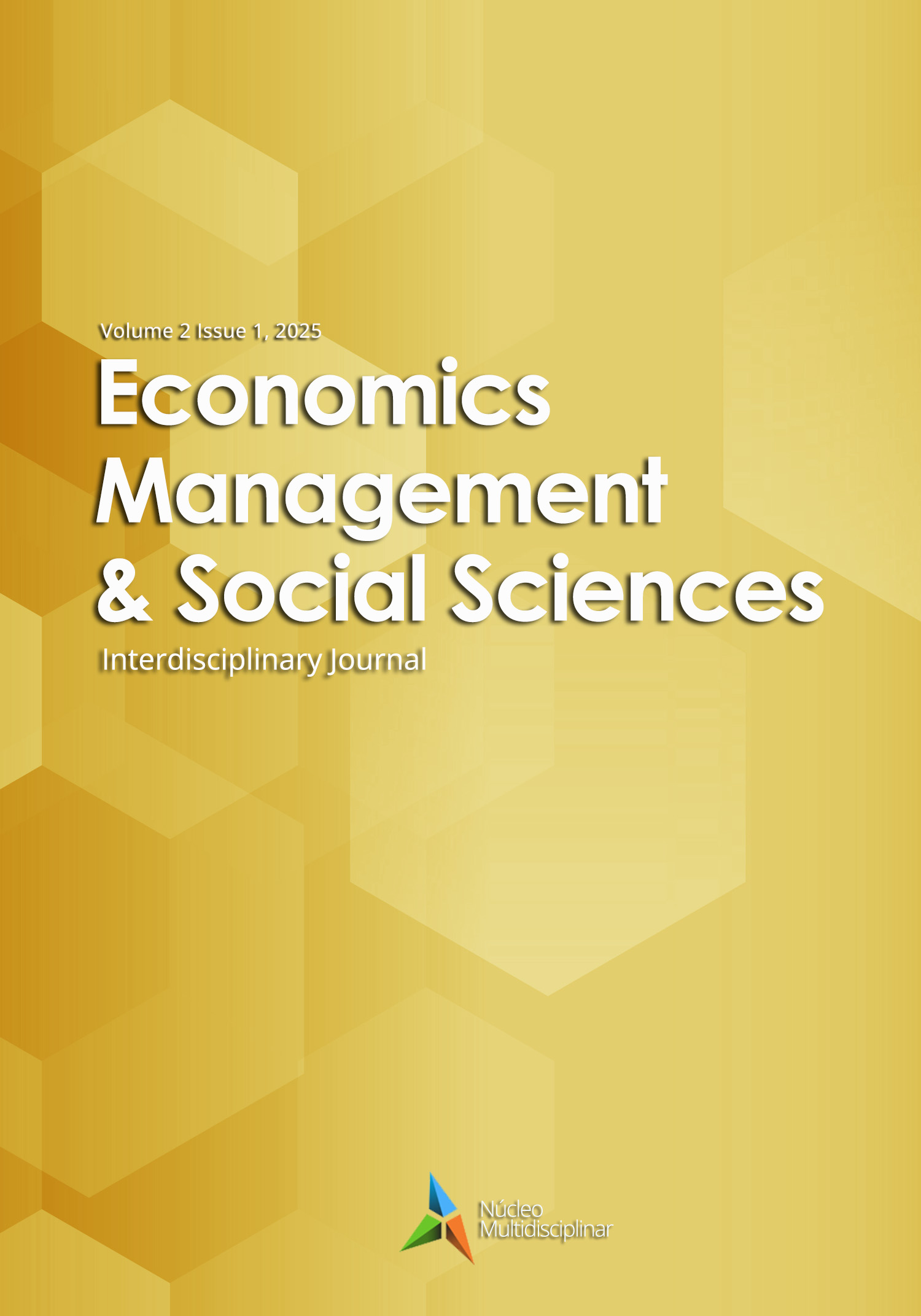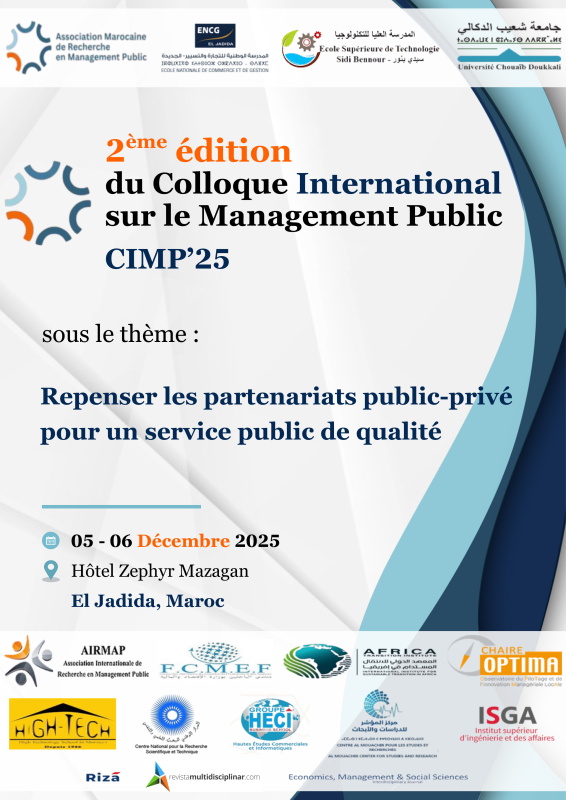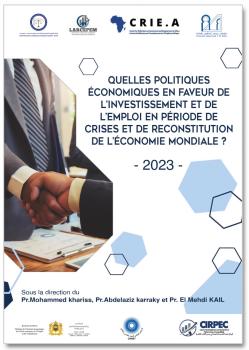The Adoption of IFRS standards and the quality of financial information
The case of companies listed on the Casablanca stock exchange
DOI:
https://doi.org/10.23882/emss25129Keywords:
IFRS, information quality, relevance, transparency, reliabilityAbstract
The context of financial scandals at the international level (Enron, Worldcom, Parmalat) and the loss of confidence of the public and investors in companies lead to a closer questioning of the quality and reliability of the financial information that companies make available to them. To deal with these dysfunctions, the accounting bodies have come together to think of standards (IAS/IFRS) that would give more transparency to the financial information communicated by companies to the various parties with whom they collaborate. Morocco could not remain outside the profound changes that the world economy has undergone. Currently, a very large project of convergence of the General Code of Accounting Standardization (CGNC) towards the International Accounting Standards IAS/IFRS has been launched in MOROCCO. The objective of this study is to identify and analyze the contributions of the adoption of IAS/IFRS standards for the improvement of the quality of financial information of Moroccan companies listed on the Casablanca Stock Exchange. In order to test this relationship, our study was carried out among 34 listed companies, through a questionnaire intended for a sample of 119 respondents. The results obtained have shown that the adoption of IAS/IFRS has a positive impact on the quality of the financial information necessary for decision-making.
References
ABDELLATIF, H. & BAGHAR, N. (2019) « Impact de l’adoption des normes comptables internationales IAS/IFRS sur les communications financières des groupes immobiliers au Maroc », Revue du contrôle, de la comptabilité et de l’audit « Numéro 11 : Décembre 2019 / Volume 4 : numéro 3 » pp : 108 – 128
Ahsina, K. (2012). Implementing IAS-IFRS in the Moroccan context: an explanatory model. International Journal of Accounting and FinancialReporting, 2 (2).
AHSINA, K., TAOUAB, O. & CHERQAOUI, M. B. (2014). L’impact de l’adoption des IFRS sur les sociétés cotées à la bourse de Casablanca : une étude exploratoire. La Revue Gestion et Organisation, 2(6), 75-83.
AHSINA, K. (2020). Have the Moroccan National Accounting Council and Academics Researchers Overestimated the Benefits of Adopting IFRS? Journal of Accounting and Finance in Emerging Economies, 6(4), 1173-1179.
BALL R. (2006), « International Financial Reporting Standards (IFRS): pros and cons for investors », Accounting and Business Research, International Accounting Policy Forum,
Bartov, E., Goldberg, S. R., & Kim, M. (2005). Comparative value relevance among german, US and international accounting standards: A german stock market perspective. Journal of Accounting, Auditing and Finance, 20 (2), 95-119.
Belkaoui, A. (2002). International accounting and economic development: the interaction of accounting, economic, and social indicators. Quorum Books, Westport, London.
Casta, J.F. et Stolowy H. (2012). « De la qualité comptable : mesure et enjeux », in Comptabilité, Société, Politique, Mélanges en l'honneur du Professeur Bernard Colasse, M. Niki.2012.
Charreaux, G. (1998). « le rôle de la confiance dans le système de gouvernance des entreprises », Economies et Sociétés, Sciences de Gestion, N° 8-9.
Christensen, H.B., Lee, E. & Walker, M. (2009). Do IFRS Reconciliations Convey Information? The Effect of Debt Contracting, Journal of Accounting Research, 47(5), 1167-1199.
Colasse, B. (2009). « IFRS : efficience versus instabilité », revue française de comptabilité n°426, novembre,
Daske, H. (2006). Economic benefits of adopting IFRS or US-GAAP – Have the expected cost of equity capital really decreased? Journal of Business Finance & Accounting, 33 (3) & (4),
Daske, H., Hail, L., Leuz, C. et Verdi, R. (2008). Mandatory IFRS reporting around the world: early evidence on the economic consequences. Journal of Accounting Research, 46 (5),
Ding et al., (2007). Differences between domestic accounting standards and IAS: Measurement, determinants and implications. Journal of Accounting and Public Policy 26(1): 1–38.
Elatife, H. (2012). “ Passage aux normes comptables internationales IAS/IFRS : Essai d’observation et de compréhension des choix effectués par les sociétés cotées à la Bourse des Valeurs de Casablanca, ” Thèse de doctorat, 2011-2012.
Iatridis, G. (2010). « International Financial Reporting Standards and the Quality of Financial Statement Information ». International Review of Financial Analysis, vol.19, no.3,
Lantto, A. (2007). « Does IFRS Improve the Usefulness of Accounting Information in a Code-Law Country? » Working Paper,Turku School of Economics,
Obert. R. (2003): « Pratique des normes IAS/IFRS : Comparaison avec les règles françaises et les US GAAP »Paris. Dunod.
Raffournier, B. (2007). « Les oppositions françaises à l'adoption des IFRS : examen critique et tentative d'explication », Comptabilité - Contrôle - Audit, 2007/3 Tome 13, p.23 .
Raffournier, B. (2009). IFRS et gouvernance d'entreprise : un cercle vertueux ? Der Schweizer Treuhänder = L'expert-comptable suisse, 2009, no. 11, p. 802-809
Soderstrom, N. S. et Sun, K. J. (2007). IFRS adoption and accounting quality: review. European Accounting Review, 16 (4), 675-702.
Downloads
Published
How to Cite
Issue
Section
License
Copyright (c) 2024 Mehdi ZAIM

This work is licensed under a Creative Commons Attribution-NonCommercial 4.0 International License.







